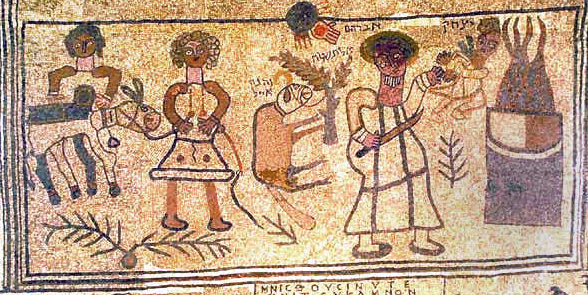God said to Abraham kill me a son…
—Bob Dylan (Highway 61)
When, in ancient times, people read the account of the life of Abraham, it was common for them to ask, “When did Abraham finally make the grade? At which point in his life was Abraham approved and accepted by God?”
Already in the account of Genesis it is apparent that there were certain moments in Abraham’s life that were particularly important in his relationship with God. But was there an instance when, either through an act of obedience or a demonstration of faith, Abraham merited God’s approval? Was there a moment when Abraham was proved to be righteous, or acceptable, or favored once and for all? Was there a moment when God specially commended Abraham for his uprightness or his courageous trust?
That Abraham had achieved an approved status with God was taken for granted; the LORD allowed himself to be remembered by all subsequent generations as the God of Abraham. Early traditions citing Abraham’s approved status tended to be rather vague, citing the commendable qualities of the patriarch and concluding that he merited divine approval and that he was, therefore, to be emulated. The earliest sources often do not point to one moment that was of particular significance, but as the traditions of Abraham’s acceptance developed, they began to take on a stylized form. Most often these focused on how Abraham had passed some sort of test (and there were plenty of trials in Abraham’s life to consider) and having passed the test, he was declared to have received divine approval. Often a verse from Genesis was cited to prove that this was, indeed, the moment at which Abraham had passed the test. Early in the development of these traditions they were not considered to be mutually exclusive, it could be that there were a number of times when Abraham merited acceptance before God. Sometimes, however, ideologies clashed, and the traditions relating to Abraham’s approval took on a polemical force. The development of certain branches of these traditions were sometimes cut off from one religious community and adopted by the other, while at other times older traditions took on a new force as the debate intensified.
Premium Members and Friends of JP must be signed in to view this content.
If you are not a Premium Member or Friend, please consider registering. Prices start at $5/month if paid annually, with other options for monthly and quarterly and more: Sign Up For Premium



